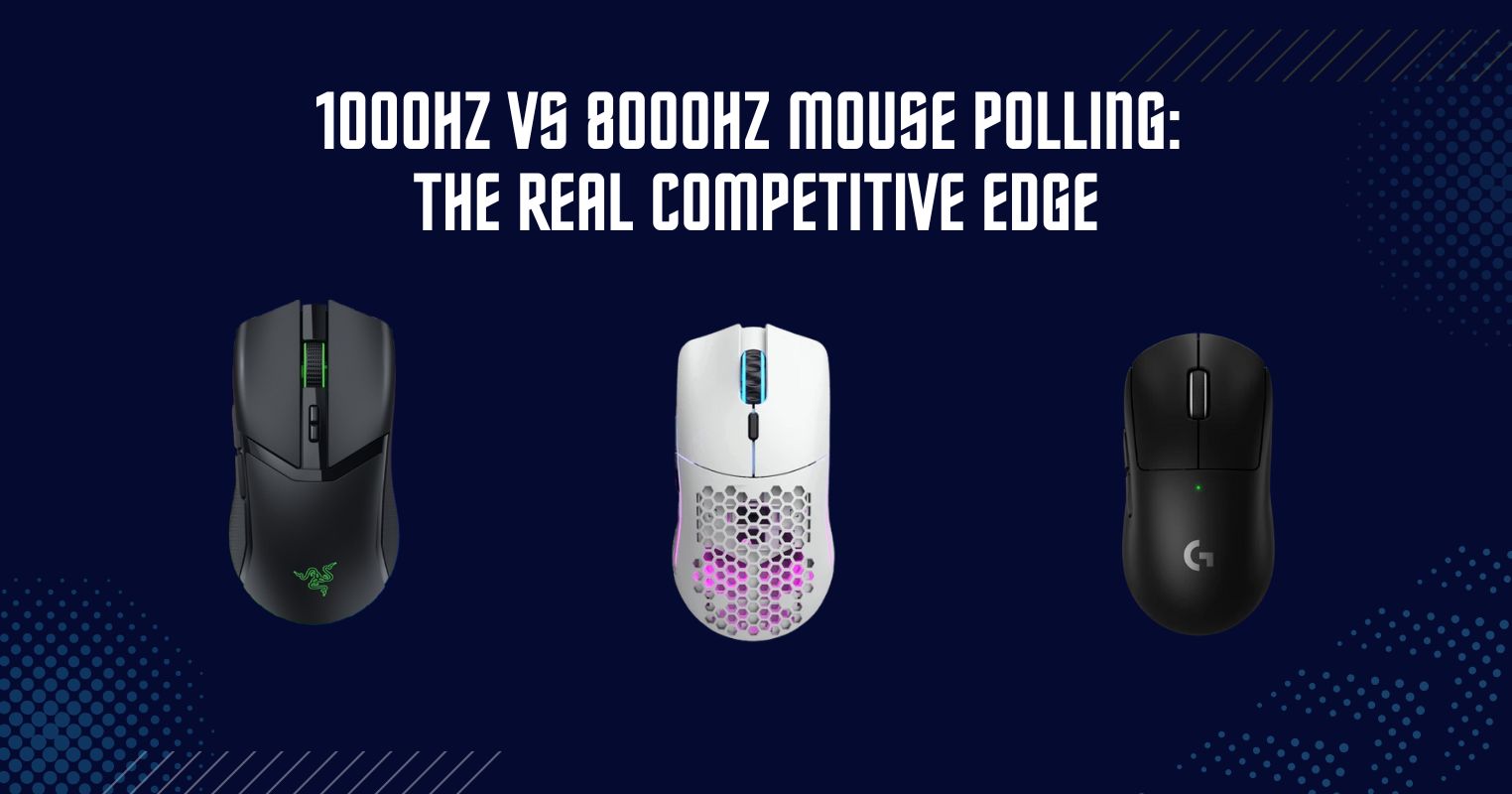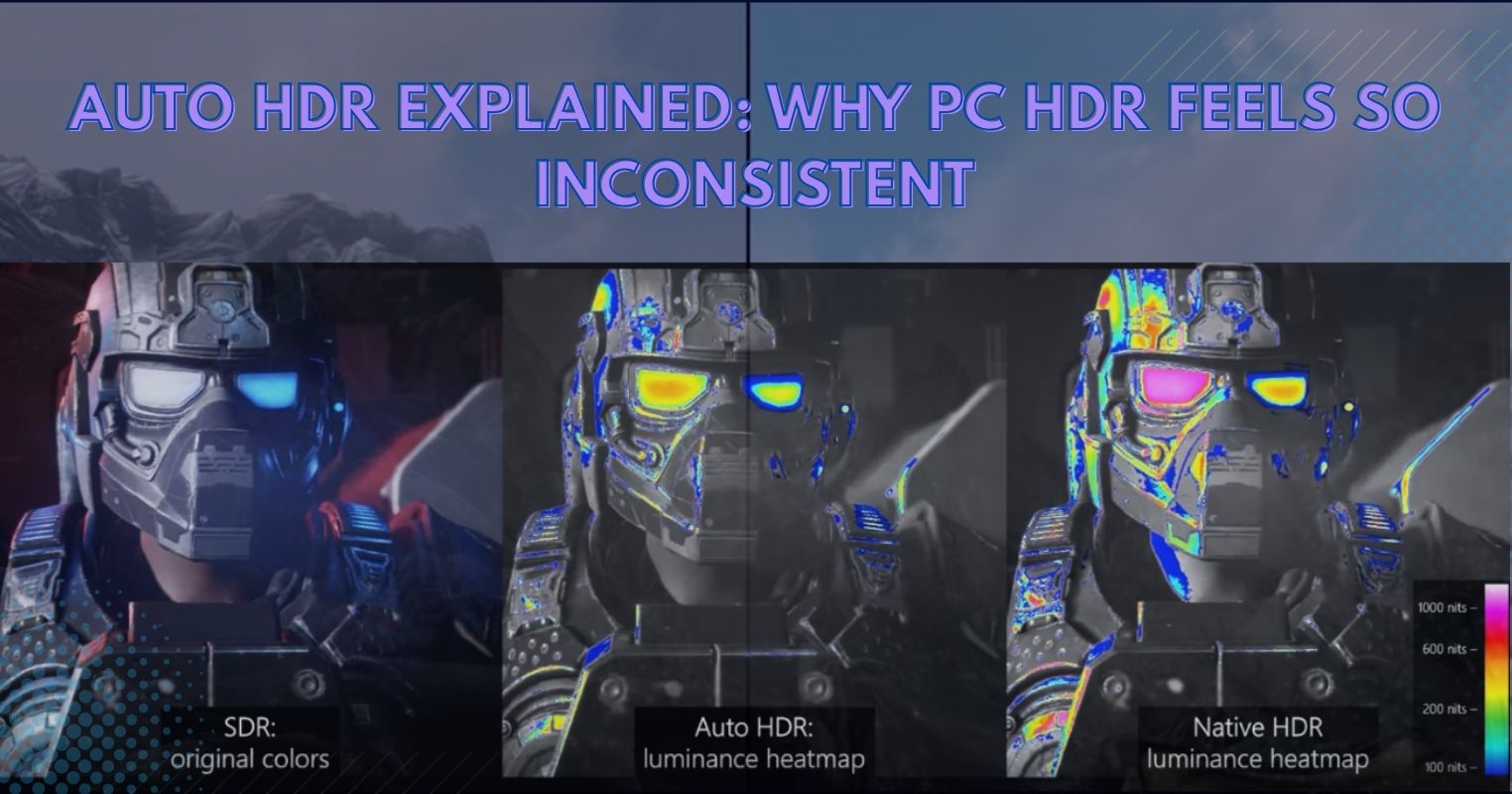- NVIDIA’s RTX 50 series GPUs offer lower generation-to-generation rasterization performance, with the RTX 4090 being ~72% faster than the 3090 while the 5090 is ~44% faster than the 4090.
- The RTX 5070 only reaches the RTX 4090’s performance thanks to using DLSS 4, while the latter uses DLSS 3 in the official benchmarks. In pure rasterization, it may not even beat the RTX 4080.
- NVIDIA changed the test’s outcome by using different Flux models to inflate the RTX 5090’s performance in the announcement.
Whenever one of the three PC giants announces their latest products there’s always a lot of speculation that gets thrown around. Two days ago NVIDIA announced their latest RTX 50 series GPUs with Jensen Huang, NVIDIA’s CEO, boasting some outstanding performance gains. However, is that all there is to it? Our close-up analysis says otherwise. NVIDIA’s claim on the RTX 50 series performance simply doesn’t hold up for several reasons and I will break them up for you so don’t go anywhere.
The Performance Gains Are Limited
The very first problem that we analyzed was the generation-on-generation performance gains. On paper, and during the announcement, the RTX 50 series might look like a sweet treat, but there’s quite a bit of poison hiding right underneath the eyes. The main reason why the RTX 50 series has such “astounding gains” is because of the latest DLSS 4 on which the GPUs were tested. But what happens when you test them on DLSS 3? Well, allow me to show you with the help of a graph we made based on NVIDIA’s CES announcement.
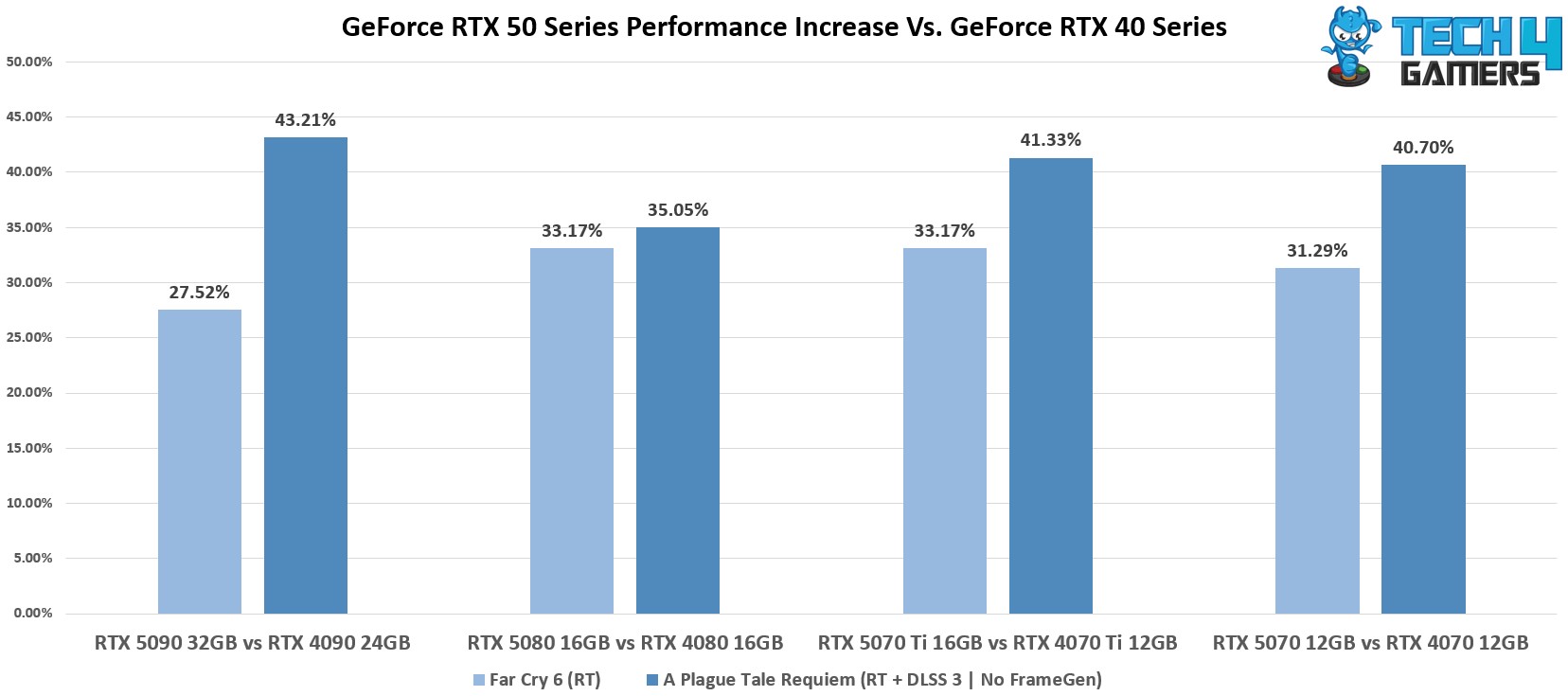
The above graph, according to our analysis, shows that “A Plague Tale Requiem” is up to ~44% faster with the RTX 5090 when compared with the RTX 4090 with DLSS 3.0. On the other hand, the same game is up to ~72% faster with the RTX 4090 when compared with the RTX 3090 under the same environment. Similarly, the RTX 5090 is up to ~27% faster in Far Cry 6 against the RTX 4090. However, the RTX 4090 is ~47% faster than the RTX 3090 in the same game.
What does this prove? Simply put, NVIDIA is focusing more on AI developments than the actual rasterization performance in their new GPUs. Personally, I wouldn’t have had much of an issue if it was announced upfront and the pricing wasn’t as ridiculous for the RTX 5090. Well, the RTX 5070’s claims aren’t up to snuff, either.
The RTX 5070 Can’t Be Equal To The RTX 4090
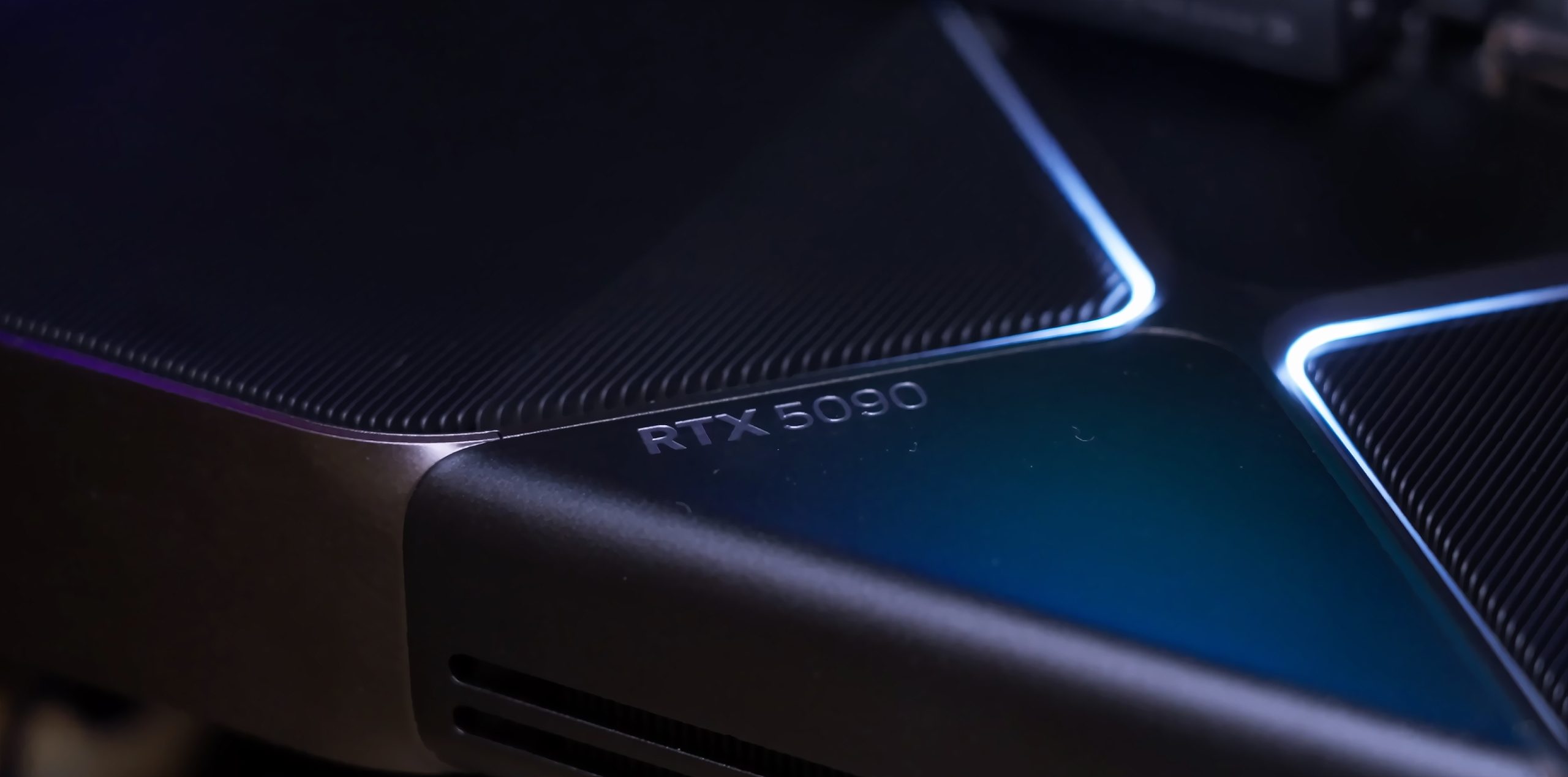
Simply based on the chart from above, it’s pretty clear that the claim of the RTX 5070 outperforming the RTX 4090 simply cannot be possible. Well, that is, unless you bring in DLSS 4. At that point, using frame generation isn’t actually improving the specific graphics card’s performance; it’s only making you feel like you’re getting more performance. In actuality, the GPU is performing much worse than whatever you’re competing it with.
Now, I don’t know about you, but I definitely wouldn’t want AI images dominating the screen when I’m playing a game. Sure, it’s cool to smoothen the FPS and squeeze some performance out of the GPU, but I just don’t endorse AI frame generation dominating pure rasterization performance. There is another reason why the RTX 5070 could have similar performance to the RTX 4090 in the official benchmarks which I will discuss below.
NVIDIA Rigged The Tests
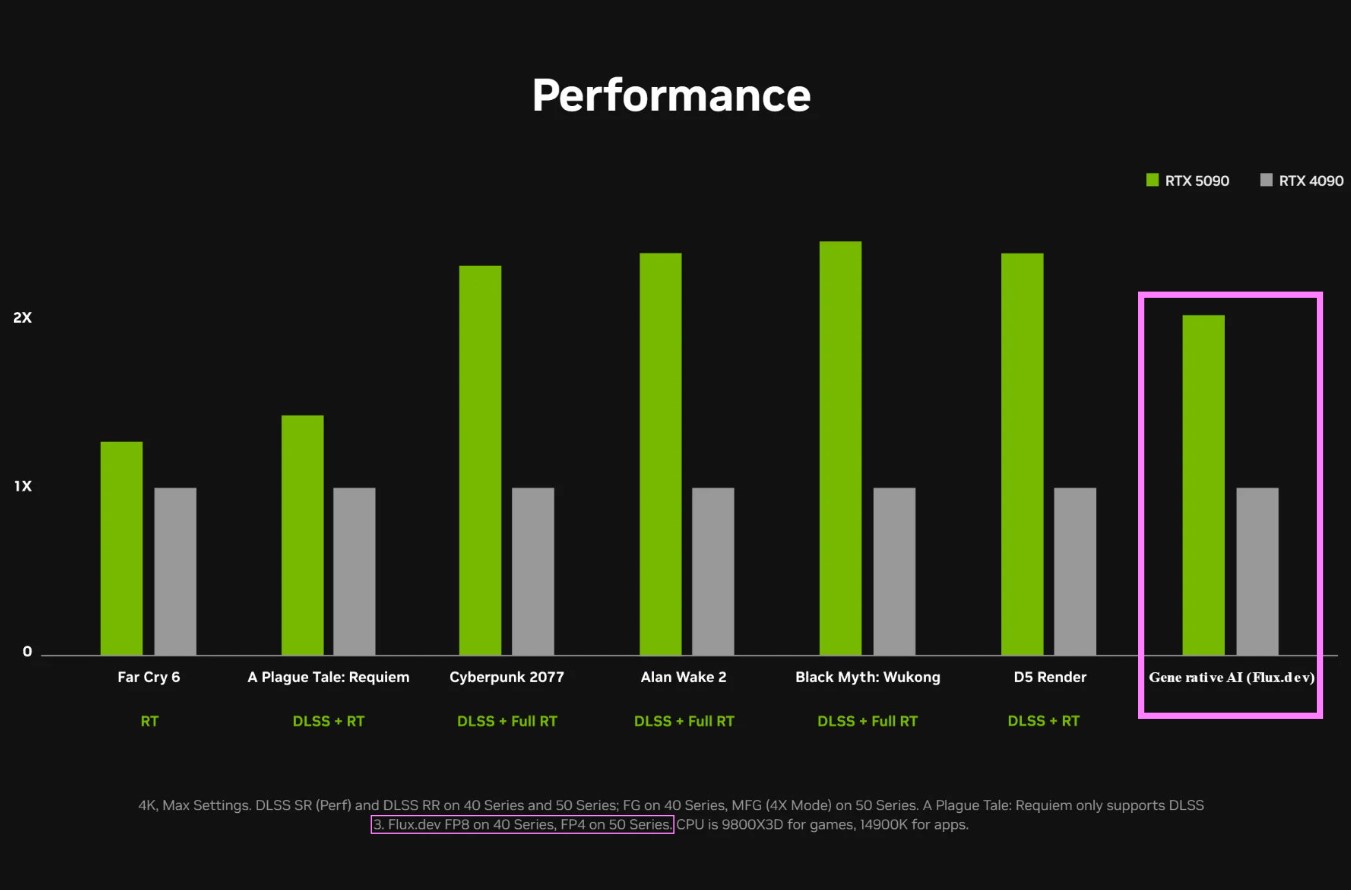
Yes, you read that right. At first glance it might be difficult to notice any rigging in the tests because they’re just graphs, right? Well, there’s a small piece of information NVIDIA mentioned in the benchmarks which more or less makes them bogus and irrelevant. You see, the details below the benchmarks are where the real game is happening, as identified by Playground.
To keep things easy to understand, NVIDIA used different Flux models to inflate the RTX 5090’s performance. For the RTX 5090, Flux models with FP4 compression were used which require half the memory and is less demanding on the graphics card. On the flip side, for the RTX 4090, Flux models with FP8 compression were used which puts more load on the graphics card.
The benchmarks are null at this point. The actual performance we’ll see whenever the GPUs are released won’t even be near to the improvements we saw two days ago during the announcement. This is why I said that NVIDIA’s claim on the RTX 50 series performance simply doesn’t hold up.
We Should Take Announcements With A Mouthful Of Salt
It used to be a “grain” of salt back in the day, but now we’re at a mouthful of salt with all the artificial benchmarks we’re shown in announcements by all three major companies. Well, AMD and Intel are still better… At least they don’t rig the tests completely like NVIDIA did this time around.
In any case, we will see some performance improvements, but nowhere close to whatever NVIDIA announced. It’ll be a miracle if the real-world performance is anywhere close. If you’re on an RTX 40 series GPU right now, I don’t see many reasons why you should upgrade to the RTX 50 series, considering that DLSS 4 will also be available for all previous GPUs.
All in all, you shouldn’t blindly trust announcements, but also shouldn’t be too disappointed about performance gains. Whenever NVIDIA releases these new GPUs in January, we will surely test them out and let you know how they perform!
Thank you! Please share your positive feedback. 🔋
How could we improve this post? Please Help us. 😔
[Comparisons Expert]
Abdemanaf is a skilled creative writer who has been honing his craft since 2011. While initially working in different fields, he found a passion for technology and has been exploring the tech world since early 2015. Over the years, he has developed an in-depth knowledge of the latest tech trends and product offerings by various companies.
Abdemanaf’s writing reflects his analytical mindset and ability to think critically. He has a knack for breaking down complex technical information into easily digestible pieces, making his articles engaging and accessible to readers from all backgrounds. In February 2022, he joined Tech4Gamers as a blog and product comparison writer, where he has been able to hone his skills further.
As a writer, Abdemanaf is dedicated to staying up-to-date with the latest technological advancements and trends, enabling him to provide readers with the most relevant and accurate information. He is always eager to learn more and is constantly seeking new challenges to improve his skills.
Get In Touch: manaf@tech4gamers.com


